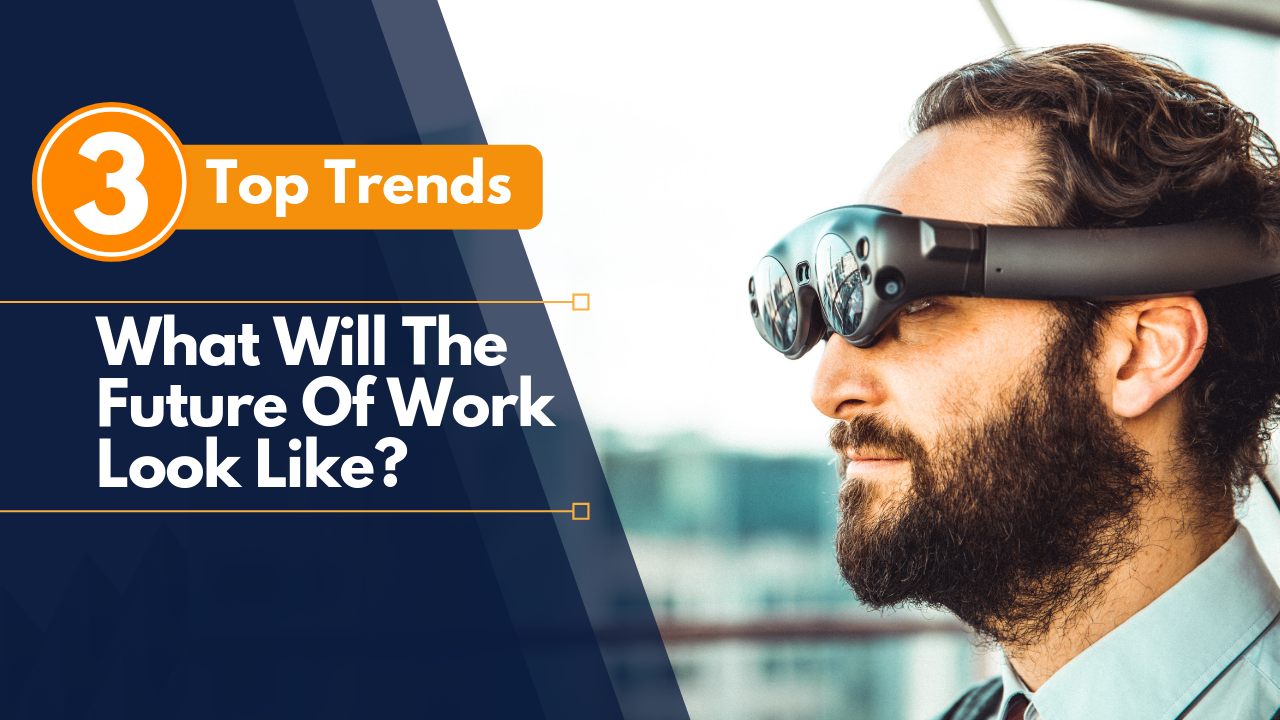What will the future of work look like? Rather than thinking about the future of work as a destination, it is an ongoing, ever-evolving process.
We are moving towards a culture that focuses on creating value rather than fulfilling tasks.
Though no one can paint an exact picture of the future of work, we can say that there are three underlying themes that will continue to shape the future workplace.
The future of work remains one of the hottest, most discussed topics in academic, business, and political circles. When people talk about the future of work, they’re talking about technology, automation, artificial intelligence, the contingent workforce, the gig economy, and globalisation. Yet, the future of work remains a highly misunderstood subject; one full of uncertainty and, to some extent, fear.
Suggested Reading: “Understanding the Future of Work and Its Implications on the Workplace”
According to Deloitte, “the future of work is being shaped by two powerful forces: The growing adoption of artificial intelligence in the workplace, and the expansion of the workforce to include both on- and off-balance-sheet talent.”
This means that the future of work is as much about technology as it is about humans. In fact, many have argued that the future of work is mostly about humans. Still, this doesn’t really answer one of the most burning questions around the future of work.
What will the future of work look like?
There’s no crystal ball to provide an exact answer; and at the rate technology is evolving today, it would be a mistake to give a specific answer. Rather than thinking about the future of work as a destination, people, companies, and governments need to think about it as an ongoing, ever-evolving process. A process that will focus on creating value instead of fulfilling tasks.
Though no one can paint an exact picture of what the future of work will look like, we can say that there are three underlying themes that are and will continue to be at the heart of the future of work.
1. The Future of Work is Flexible
As technology continues to enable mobility, geographical location will matter less in relation to work. Flexibility can no longer be a perk for employees; in the future of work flexibility is an asset that can help reduce costs, drive business resilience, and improve engagement.
This is why companies are already increasingly hiring on- and off-balance-sheet local and global talent. Companies and organizations are also increasingly offering flexible schedules and flexible working frameworks that allow them to tap into the best talent and enable better work performance. The search for more flexibility has powered the growth of the gig economy and the digital nomad lifestyle.
Suggested Reading: “Future of Work: Introducing the Flexiverse”
But the element of flexibility goes beyond talent and it calls for flexible resources (human, financial, and physical) in order for companies and organizations to remain nimble and be able to adapt to the changing needs of consumers. Workers are increasingly demanding flexible work environments, and organizations can also greatly benefit from these, as they allow companies to grow and contract as needed, as well as enable them to more easily enter new markets.
The future of work is flexible because technology will continue to evolve and organizations that are equipped to adapt to and adopt emerging technologies will be the ones that are able to future proof their business.
2. The Future of Work is About Human and Technological Collaboration
The future of work is being shaped, in the most part, by technology. This will continue to be the case, and contrary to popular belief, robots will not be taking over human jobs any time soon. Technology is an enabler; and it will enable humans and companies to increasingly focus on creating value and knowledge.
In order for this to happen, humans will have to successfully collaborate with technology, as this will augment and enhance human capabilities. Artificial intelligence has the potential to help doctors make better diagnosis; robotics could potentially give doctors the opportunity to perform remote surgeries; collaboration between humans and robots can increase productivity in assembly lines; connected devices can collect valuable data for better building construction, layout, and usage; and artificial intelligence can help lawyers conduct research and go through thousands of cases to find relevant information for clients or active cases.
Technology is not a substitution, it’s an extension of human capabilities and skills.
3. The Future of Work is Upskilling and Reskilling Workers
If technology continues to evolve, professionals will need to evolve with it. One key element to the future of work is the upskilling and reskilling of workers. This will serve two main purposes: one, reduce the amount of people that lose their jobs to automation and two, it will enable companies to continuously implement emerging technologies.
Suggested Reading: “Learnability: The Most Important Skill to Succeed in the Future of Work”
Earlier this year, the World Economic Forum stated that “lifelong learning and reskilling initiatives will be key to ensuring both that individuals have access to economic opportunity by remaining competitive in the new world of work, and that businesses have access to the talent they need for the jobs of the future.”
According to the organization, technology will displace 75 million jobs by 2022, but it will create 133 million new roles; roles for which professionals are not yet trained. This means that in the future of work, it’s imperative for an individual’s skills to be up to date; and this is a task that falls on both individual workers and companies. Upskilling and reskilling will ensure employability and business success. (Read the top 10 skills you need to succeed in the future of work)



 Dr. Gleb Tsipursky – The Office Whisperer
Dr. Gleb Tsipursky – The Office Whisperer Nirit Cohen – WorkFutures
Nirit Cohen – WorkFutures Angela Howard – Culture Expert
Angela Howard – Culture Expert Drew Jones – Design & Innovation
Drew Jones – Design & Innovation Jonathan Price – CRE & Flex Expert
Jonathan Price – CRE & Flex Expert












